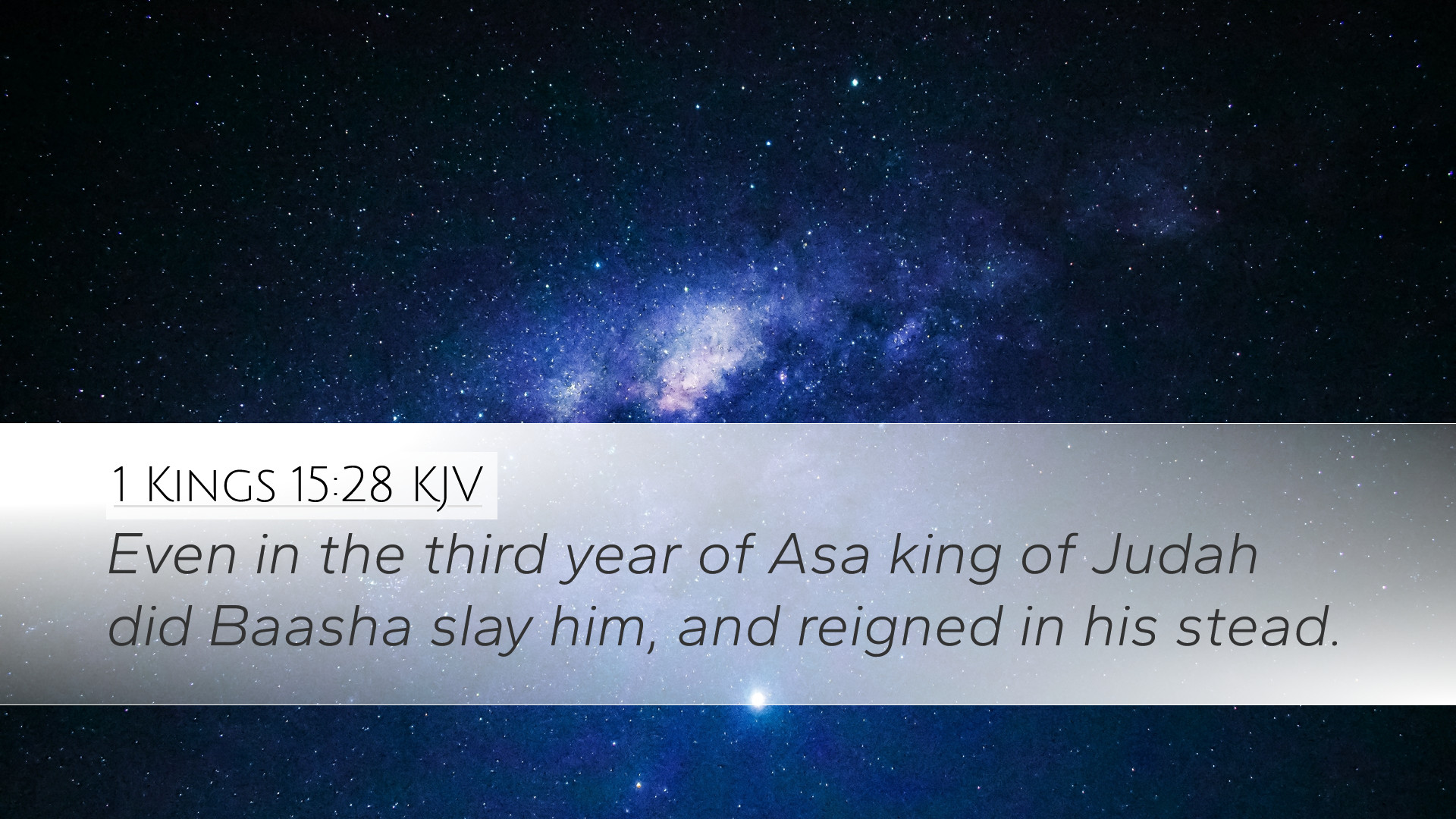Contextual Background
This verse marks a critical transition in the narrative of the Kings of Israel. Baasha's assassination of Nadab, who was the son of Jeroboam, signifies the continuation of political upheaval and the quest for legitimacy in a lineage that had been marked by idol worship and rebellion against the covenant community of Israel.
The historical backdrop of this passage involves the divided kingdom of Israel and Judah. Following Solomon's reign, Israel faced division, leading to Jeroboam's kingdom, characterized by idolatry and conflict. The reigns of the kings subsequently describe a pattern of warfare, sin, and eventually divine judgment.
Commentary Insights
Several public domain commentators provide rich insights into the implications of this verse, particularly concerning the themes of leadership, divine sovereignty, and the role of divine retribution in the history of Israel.
Matthew Henry's Commentary
Matthew Henry emphasizes the providence of God in the affairs of men. He notes that the rise of Baasha to power, through the assassination of Nadab, illustrates the harsh reality of political instability in Israel. Henry suggests that Nadab’s death was a fulfillment of the prophecy given to Jeroboam regarding the judgment upon his house for its idolatry.
Baasha is seen as a vessel for God’s judgment, albeit he himself would later succumb to similar sins. Henry warns of the cyclical nature of sin and judgment within the Israelite monarchy, suggesting that leaders must not only consider their political maneuverings but also their spiritual standing before God.
Albert Barnes' Notes on the Bible
Albert Barnes provides additional depth to the discussion by highlighting the significance of timing in this event. He notes that Baasha's ascension comes during the third year of Asa's reign in Judah, implying that while Judah is seeing a period of reform and righteousness under Asa, Israel continues in its cycle of sin and violence.
Barnes stresses the contrast between Asa’s reformist efforts and the corruption of Israel's kingship. He suggests Baasha's actions are directly linked to the broader narrative of divine judgment against Jeroboam’s lineage, reinforcing the principle that God actively participates in the governance of nations, using human actions—even violent ones—to fulfill divine purposes.
Adam Clarke's Commentary
Adam Clarke focuses more on the implications of Baasha's character and reign. He reflects on Baasha's ambitions and how they mirror those of other leaders in Israel—seeking power through violence rather than through legitimate succession. Clarke posits that Baasha's rule, which begins with bloodshed, sets a precedent for the nature of kingship in Israel; it becomes synonymous with treachery and assassination.
Furthermore, Clarke remarks on the spiritual ramifications of a leader who comes to power through immoral means. He warns that while Baasha might possess political power, the spiritual fate of Israel remains endangered as long as its kings disregard the covenant with Yahweh.
Conclusion
In 1 Kings 15:28, we find a poignant snapshot of the tumultuous history of Israel's monarchy. The assassination of Nadab at the hands of Baasha serves not only as a historical chronicle but also as a theological commentary on the nature of power, divine retribution, and the necessities of covenant faithfulness.
For pastors, theologians, and serious students of Scripture, this verse serves as a reminder that political power must always be aligned with God’s righteousness, and leaders are accountable to the higher authority of divine justice. The cyclical nature of sin found within these historical narratives cautions against complacency in spiritual vigilance while underscoring the need for faithful leadership in both Israel and the contemporary church.


